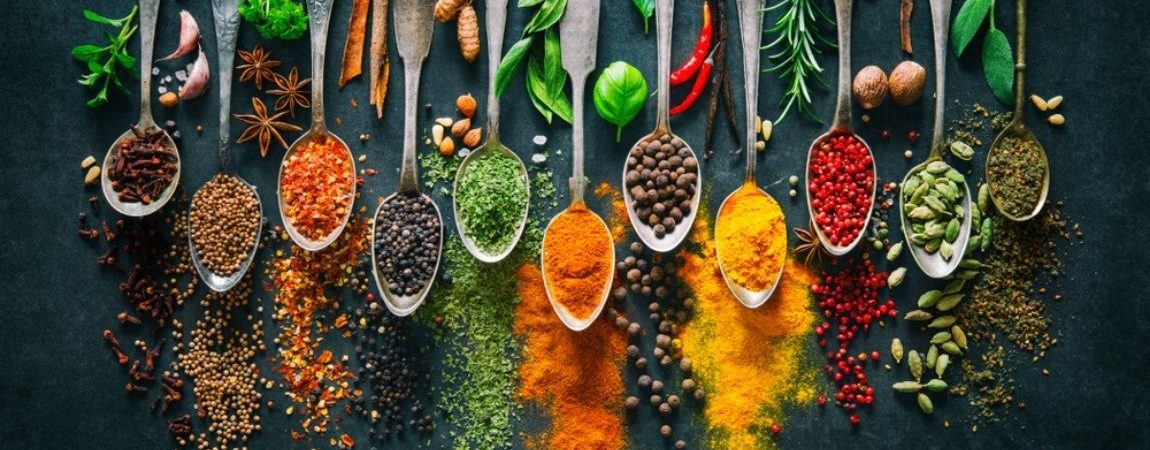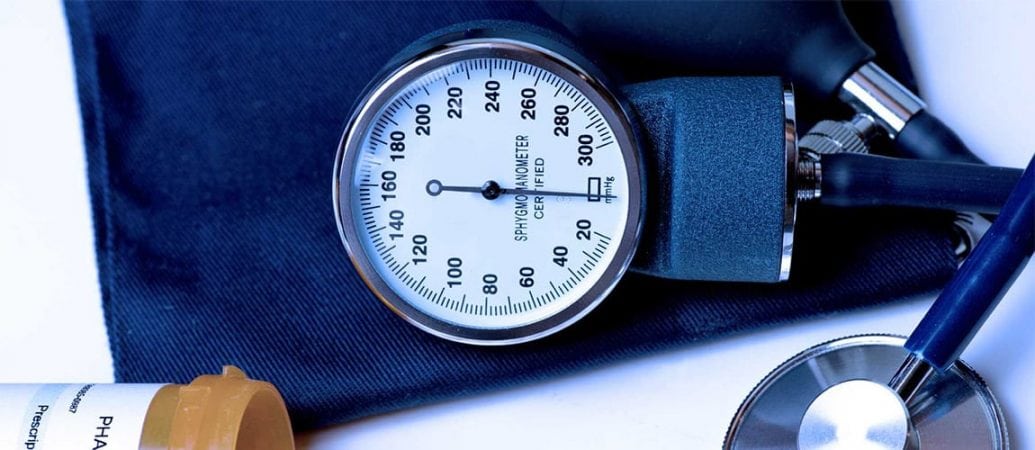Can Certain Herbs Lower Blood Pressure?
If you struggle with high blood pressure or worry about it affecting you later in life, it is important that you arm yourself with the knowledge needed to nourish your body in the right ways. New research on how herbs lower blood pressure is shedding light on how a diet rich in spices and herbs may help to reduce blood pressure levels in some individuals. Here is what you need to know about the problem of hypertension and heart disease in America and how you can change your diet to mitigate these risks.
What You Need to Know About Hypertension and Heart Disease
 Blood pressure is simply the measurement of the blood pressing against the walls of the body's arteries. It is these arteries that move the blood from the heart to every other part of the body. While it is normal for blood pressure to fluctuate throughout the day and in different situations, levels that are too high on a consistent basis can lead to a variety of health issues.
Blood pressure is simply the measurement of the blood pressing against the walls of the body's arteries. It is these arteries that move the blood from the heart to every other part of the body. While it is normal for blood pressure to fluctuate throughout the day and in different situations, levels that are too high on a consistent basis can lead to a variety of health issues.
Chief among these issues is hypertension. Hypertension, also known as high blood pressure, can lead to cardiovascular disease and a high incidence of stroke, kidney disease, loss of vision and more. According to the U.S. Centers for Disease Control and Prevention (CDC), almost half of all American adults struggle with high blood pressure.
Both the American College of Cardiology and the American Heart Association define hypertension as a blood pressure reading at or over 130/80 mmHg. Stage 2 hypertension is diagnosed when blood pressure levels sit at or above 140/90 mmHg.
How Herbs Lower Blood Pressure
A primary contributor to high blood pressure is an excessive consumption of salt. Because of this, current U.S. dietary health guidelines recommend substituting herbs and spices to flavor food rather than salt. In addition to using herbs and spices as a substitute for salt, these flavor additions have also been shown to lower lipemia in the body. Lipemia is the excess of lipids in the bloodstream, making it a significant contributor to hypertension.
Researchers at Pennsylvania State University conducted a controlled trial that examined in more detail the effects of herbs and spices on blood pressure levels and the resulting risks of cardiovascular disease. The results found that consuming a greater level of spices and herbs reduced blood pressure readings over a 24-hour period.
The study included a total of 71 participants, all between the ages of 30 and 75 with at least one risk factor for cardiovascular disease such as being overweight or obese. After fasting for 12 hours, the participants were assigned to eat a diet that was either high, moderate or low in herbs and spices intake. The researchers were intentional about incorporating the consumption of herbs and spices that the average American would typically take in, including oregano, cinnamon and turmeric.
The follow-up data indicated that those who were assigned the high-spice and herb diet experienced a noticeable improvement in their 24-hour blood pressure readings compared to those who were in the moderate-spice and low-spice diet groups.
While further research is needed to draw specific conclusions, the early data points indicate that a diet rich in herbs and spices may provide a health boost to those individuals looking to keep their blood pressure in check.
How You Can Support Good Heart Health
In addition to focusing on getting plenty of herbs and spices into your diet, there are a number of other active steps that you can take to support heart health both now and in the future.
Watch Your Diet
 One of the most effective ways that you can keep your blood pressure levels at a healthy number is to watch what you eat. Doctors recommend that you focus on eating plentiful amounts of fresh fruit and vegetables, whole grains, seafood and nuts in an effort to boost overall heart health.
One of the most effective ways that you can keep your blood pressure levels at a healthy number is to watch what you eat. Doctors recommend that you focus on eating plentiful amounts of fresh fruit and vegetables, whole grains, seafood and nuts in an effort to boost overall heart health.
Take a Supplement
A targeted supplement can go a long way in ensuring that nothing falls through the cracks for your nutritional needs. For instance, a supplement such as Cardiochron is specifically designed to provide nutrients that promote a healthy cardiovascular system. The natural ingredients in Cardiochron help protect the body against dangerous free radicals while simultaneously supporting good cellular health.
Get Moving
Watching what you eat is not the only step that you can take to proactively keep your blood pressure where it needs to be. Combining a nutritious diet with a regular exercise routine delivers a powerful knockout to hypertension. Even a long walk each day is helpful in these efforts.
Take a Breath
It is no secret that blood pressure can skyrocket when you feel under stress. This makes it important to be intentional about breathing deeply. Slow and deep breathing a few times per day is a good technique when looking to reduce blood pressure.
Staying on top of your blood pressure readings and being proactive about keeping these levels in a healthy range will ensure that you catch potential issues before they become a bigger problem.





